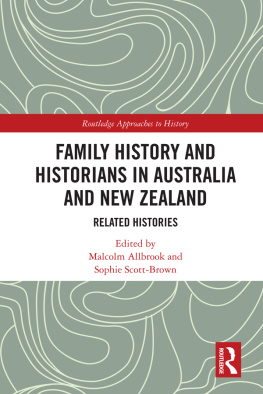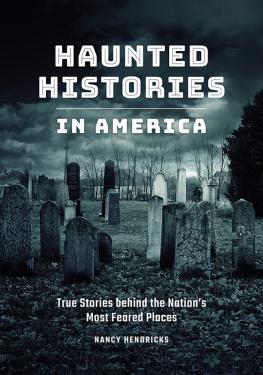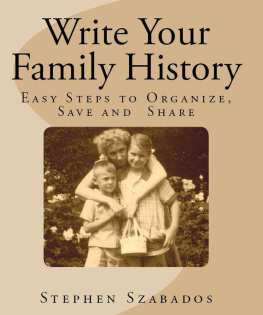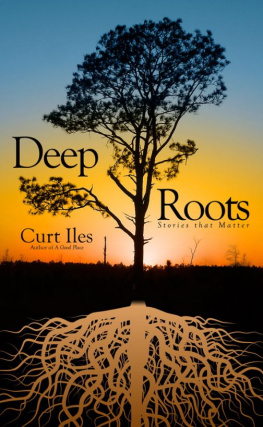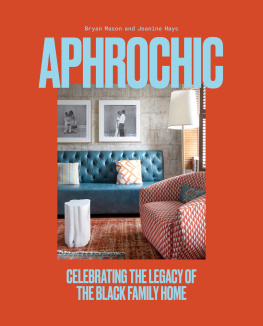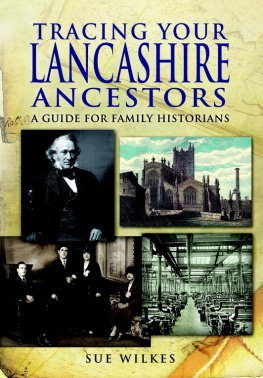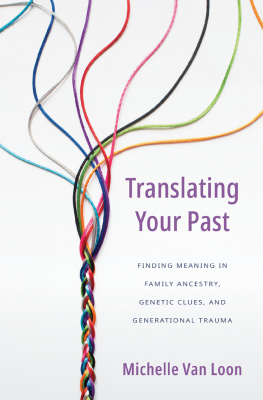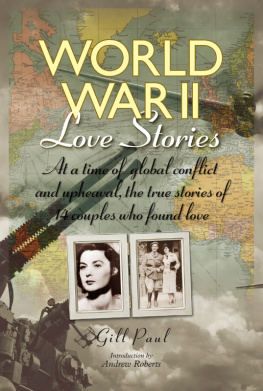CAREFUL NOW
We hope you will enjoy the brilliant ideas contained in this book. Use the information wisely and you will find yourself gradually building up an interesting collection of facts, documents and images about your family, house or local area. While we do our best to provide you with the most up to the minute resources its obvious that information is not a static thing, especially where the world wide web is concerned for this we apologise but we cant be held responsible. Its your life so sharpen your pencil, put on your sleuthing hat and get out there and enjoy yourself.
Copyright The Infinite Ideas Company Limited, 2006
The right of Paul Blake and Maggie Loughran to be identified as the authors of this book has been asserted in accordance with the Copyright, Designs and Patents Act 1988
First published in 2006 by
The Infinite Ideas Company Limited
36 St Giles
Oxford, OX1 3LD
United Kingdom
www.infideas.com
All rights reserved. Except for the quotation of small passages for the purposes of criticism or review, no part of this publication may be reproduced, stored in a retrieval system or transmitted in any form or by any means, electronic, mechanical, photocopying, recording, scanning or otherwise, except under the terms of the Copyright, Designs and Patents Act 1988 or under the terms of a licence issued by the Copyright Licensing Agency Ltd, 90 Tottenham Court Road, London W1T 4LP, UK, without the permission in writing of the publisher. Requests to the publisher should be addressed to the Permissions Department, Infinite Ideas Limited, 36 St Giles, Oxford, OX1 3LD, UK, or faxed to +44 (0)1865 514777.
A CIP catalogue record for this book is available from the British Library
ISBN 1-904902-67-7
Brand and product names are trademarks or registered trademarks of their respective owners.
Designed by Baseline Arts Ltd, Oxford
Typeset by Sparks, Oxford
Printed by TJ International, Cornwall
Brilliant ideas
Taylor, Townsend, Thompson: we all have a name but where did it come from and what does it mean?
Family stories abound but discovering which parts are true and which are false is a problem. The answer is to use first-hand accounts as the foundation of your investigations.
From old boxes under the bed to dirt-encrusted suitcases in the attic, we all have collections of memorabilia, ephemera and documents relating to the history of our homes and family.
Youre not alone there are countless others trying to discover more about themselves or their communities. Contacting them can only help you with your own researches.
By asking questions, particularly of your older relatives, you could get vital clues about your familys past. However, dont rely completely on family stories before youve cross-checked them with other sources.
Local history societies and family history societies abound in all parts of the world. Their journals and books are a rich source of help and advice if you know how to use them effectively.
Since the mid-nineteenth century, the government has been officially recording births, marriages and deaths. Join us to glean the most from these records.
Not as common as it is now, but the best of intentions have often ended in separation and divorce in the past. And if not the latter, then wife-selling or bigamy may have resulted.
Newspapers are a fantastic resource for the local and family historian. They are full of information both about people and places that you will rarely find recorded anywhere else.
Our most intriguing ancestors are dead ones, particularly if their end was of the sticky variety. Coroners records and newspapers may reveal all.
Slabs, brasses, headstones, memorial gardens, crematoria and churchyards can all bring the dead back to life for you metaphorically speaking, that is.
The provision of free education for all was part of the push for social reform and improvement of the masses. Now it also provides history hunters with a new source of information.
One of the most important and easily accessible primary resources for local and family historians is the census. Learning how to interpret it properly will pay handsome dividends.
Just as now, in previous centuries anyone wanting to know the location of a local plumber or undertaker, or even the address of an acquaintance, would turn to a local directory. You can turn those same pages.
Although not all of us were able to vote until 1929, if you know who could vote, where, and when, then another potential source of information about your ancestors becomes available.
Taxation is as old as time, and thats just as well from the historians perspective because tax records offer a wealth of information about the lives of our ancestors.
The maps and plans of Britain are a cornucopia of landscape information. Plot the geographical changes in your community and see how it grows.
Begin your prowl and discover whats found where within the giant labyrinth of archives, libraries and record repositories.
Clarity, Convenience and Completeness are the golden rules for organizing your research. Living by them might be difficult, but the benefits are well worth the effort.
All dates are not the same so it is important that you understand the old dating practices in order to date documents correctly.
Follow the branches of your familys migrations they may stretch further and wider than you think.
For centuries, the Church has kept registers of baptisms, marriages and burials. They can very effectively open up a window on the lives of our forebears.
Wills have a singular importance, not least because of the detail they frequently contain about family, relationships, property and place of burial.
If we were all the same, it would be a dull world and when it comes to religion, its no different. Nonconformist ancestors can add even more depth to your roots.
Most of our parents and grandparents played a part in the twentieth century wars, even as civilians. Find out what part it was that they played.
If not tinker or tailor then possibly soldier or sailor. In yesteryear, almost every family has been represented in its countrys armed forces. Hence, a good place to look for ancestors.
Apprenticeship indentures can be an invaluable source for discovering the origins of a tradesman or artisan among your ancestors.
Were your ancestors higglers or badgers; labourers or lacemakers; clockmakers or carmen; or even working in the oldest profession? Find out.
Architects, doctors, clerics, surgeons, MPs, lawyers, dentists and their ilk: professionals are usually far easier to trace than ancestors who were labourers.
Parish chests are a rich supply of information rarely found anywhere else. They can give you a fantastic insight into the life of your forebears.
Heraldry is all around us on inn signs, in stained-glass church windows and as hatchments (armorial bearings of the dead) and perhaps on the spoons in your cutlery drawer.
Lords and labourers all contributed to the extraordinary records of the manorial courts, which can reveal the history of communities from the twelfth century.
For the family historian, crime really does pay. Criminal ancestors left an extensive paper trail, allowing you to uncover a tremendous amount of information about them.
Emigration has generated a wide diversity of records, which, due to their very origins, need to be hunted for in a number of different places.
Your ancestors may have been among the refugees, merchants and entrepreneurs who, over the centuries, decided that the grass was greener in Britain and made the move.
Not too long ago, you were the child of your father according to your mother. Today, genetics can help in determining our origins, but its still not the great revealer that many believe.


